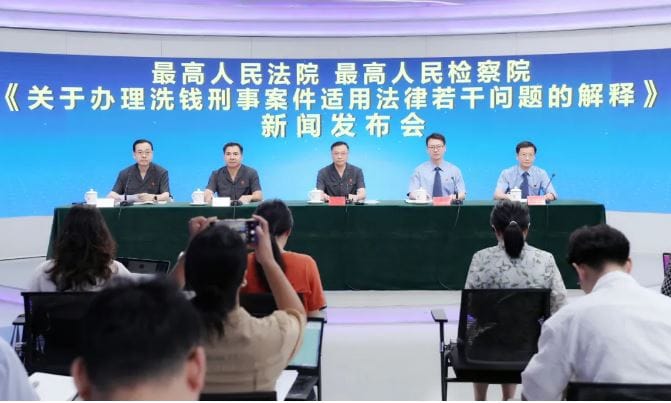China supreme court revises Anti-Money Laundering law to include ‘virtual assets’
China’s supreme court and public prosecutor have revised their interpretation of the country’s Anti-Money Laundering (AML) laws to recognize “virtual asset” transactions for the first time
China’s supreme court and public prosecutor have revised their interpretation of the country’s Anti-Money Laundering (AML) laws to recognize “virtual asset” transactions for the first time.
The country adopted its existing AML law on Jan. 1, 2007, making the latest revision its first significant update in almost two decades.
In an Aug. 19 conference, the Supreme People’s Court and the Supreme People’s Procuratorate said under their new interpretation of the law, “virtual asset” transactions are now listed as one of the recognized money laundering methods.
It comes amid recent speculation on X that the country could be looking to unban crypto soon — though many are skeptical about it.
According to the courts, the transfer and conversion of criminal proceeds through digital transactions will now be covered under regulations that prohibit “covering up and concealing the source and nature of criminal proceeds and their benefits by other means.”
Lawbreakers face penalties ranging from a minimum of 10,000 Chinese yuan ($1,400) to 200,000 yuan ($28,000) for more severe offenses. Offenders could also face jail terms of between five and 10 years.
The other amendments include clearer guidelines around “serious circumstances” in money laundering cases, such as refusal to cooperate with authorities or if the amount being laundered is more than 5 million yuan ($700,000).
The Supreme People’s Procuratorate said that 2,971 people were prosecuted for money laundering in 2023, a 20-fold increase from 2019.






